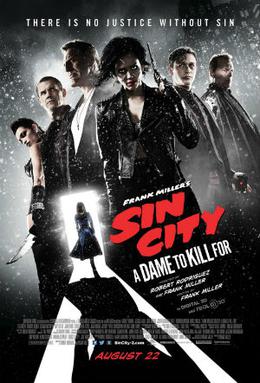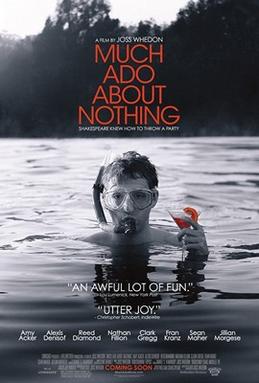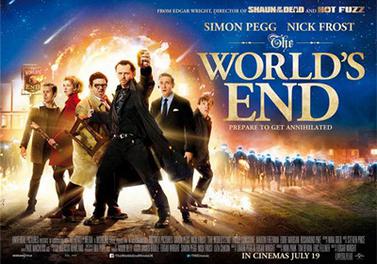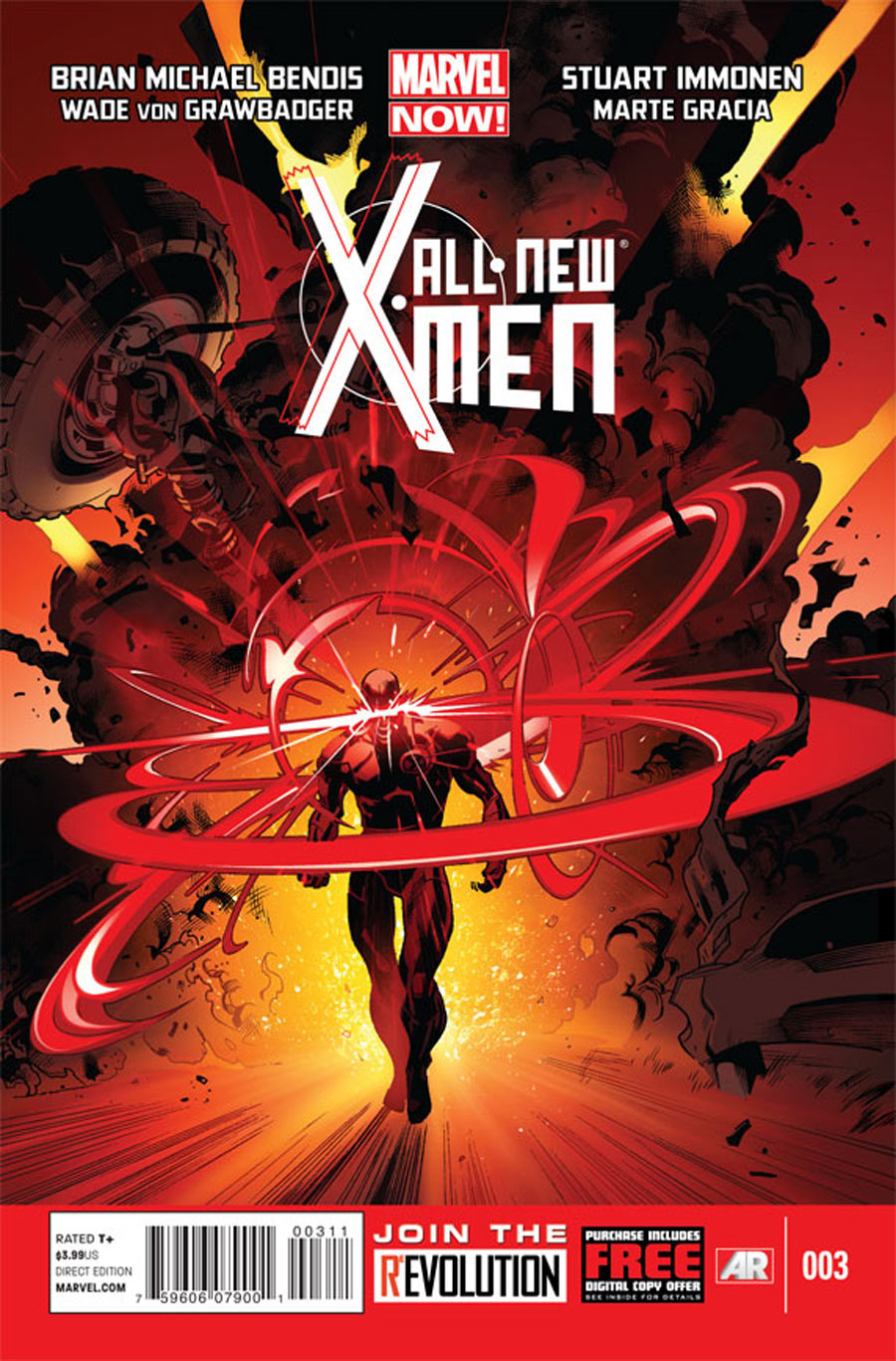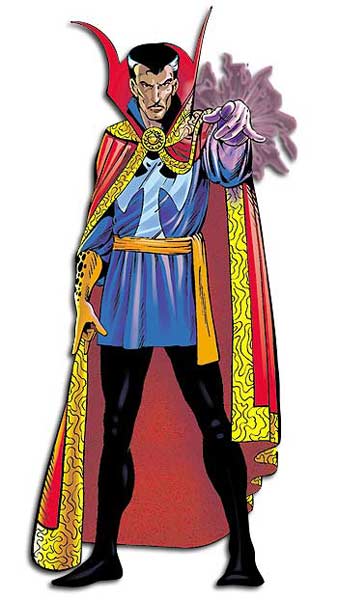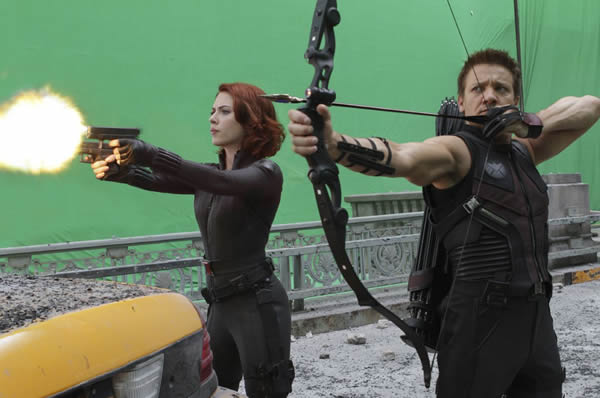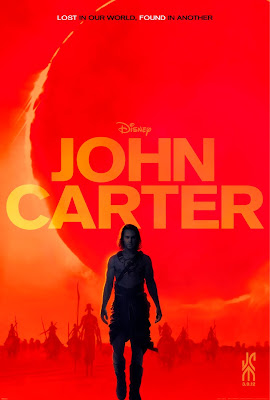
As I sit here in SeaTac Airport, waiting 2.5 hours for Midwestern weather to let our plane fly to New York and contemplating whether or not I should jettison my Vista-operating laptop at 30,000 feet, I decided now's as good a time as any to do a new post: my personal pics for the Top 11 Deaths of characters on Television.
Some guidelines and ground rules: 1) This list will be based on how dramatic the character's death was and what impact it had on the rest of the show. 2) There will be spoilers. These picks are at least a few months old, but still, if you're sensitive about that sort of thing, turn back now. 3) The character has to have died on the show, not in a movie or comic spin-off. 4) The character ideally should stay dead. This rule will get bent a bit, but whatever. 5) It's my list, my shows, my opinions. If you disagree with my selections or feel a character was left out, make your own damn list. This is mine and I will make it as I see fit. 6) Why top 11? Why the cuss not?
So, without further adieu, here are my selections for the Top 11 TV Deaths!
11)
Frank Archer
"Laws and Promises",
Fullmetal Alchemist
I'm not a big anime fan, let's say that right off the back. I don't have anything against the genre/medium/whatever you want to call it, I just don't think I'm ever going to bury myself in Japanese animation as so many often do. However, I watched Fullmetal Alchemist, and I did like it, and of the numerous deaths on the show, it was Lieutenant-Colonel Frank Archer (Sorry, Hughes).
Archer is introduced partway through the series as a member of the state military under one of our protagonists, Colonel Roy Mustang. Unlike Mustang and the rest of his subordinates, Archer has a love of war and violence, seeing them as both a sport and a way to move up the ranks of the military. To this end, he turns the state's attention to controversial weapons projects and eventually leads a violent raid on the peaceful city of Lior. However, this turns out to be a trap, which results in some of Archer's men being killed and Archer himself losing the left half of his body.
He survives (because at the end of the day this is a cartoon) and is rebuilt as a cyborg. His sanity is shattered by this, with his love of bloodshed and the military now an obsession. When he learns that Mustang is attacking the head of the military, the corrupt Fuhrer-King Bradley, Archer goes on a mad rampage through the city of Central to stop him. He arrives too late to save the Fuhrer, but not too late to kill the severely weakened colonel. As he's about to attack, he is shot dead by Mustang's partner and potential love interest, First Lieutenant Riza Hawkeye, thus putting an end to the metal monstrosity for good.
Frank Archer's death wasn't particularly dramatic or even unexpected, but by god was it cathartic. With him defeated, the audience could let out a breath of relief; the Fuhrer was dead, Mustang and Hawkeye were alive, and the immediate threat to the military characters had passed. All that was left was the fight for our main protagonists, the Elric brothers, but that's a story for another time.
10)
Joyce Summers
"The Body",
Buffy the Vampire Slayer
I had to include at least one death from a Whedon show, and since I couldn't include Hoban Washburn as per my own rules, this is the death I picked. And oh man, what a death. Or, really, what an aftermath.
In a departure from the expected, Buffy Summers's mother Joyce died in a wholly ordinary fashion, having suffered a stroke after a successful brain surgery to remove a tumor. What follows is one of the best episodes of television ever made, with the reactions from most of Buffy's supporting cast (Spike didn't show up): from shock to confusion to panic to sadness to a complete lack of understanding about mortality. However, it's Buffy's reaction that's the strangest: numbness. After coming to terms with her mother's death, she initially doesn't know how to properly react, and so just, in her own way, shuts down, drifting through the process of dealing with an immediate death with little emotional response.
Joyce Summers was a fantastic character and TV mom: patient and understanding but strict when she needed to be, out of the loop but still cool. Her departure was tragic, but gave us one of the best episodes, not just of the show she came from, but of television itself.
9)
Calculon
"The Thief of Baghead",
Futurama
Calculon is one of the oldest robots in Futurama, having been created in the 21st Century and since then been most of the greatest robot actors of the next millennium, including Acting Unit 0.8, Thespomat, and David Duchovny. Currently, Calculon stars as Calculon on the long-running soap opera
All My Circuits; at least he did, until his 'untimely' death.
In the seventh season episode "The Thief of Baghead", Calculon challenges the greatest actor of the 31st Century, Langdon Cobb, to an acting competition in order to save the world and the lives of the Planet Express crew (long story, watch the episode). Calculon chooses Romeo's soliloquy at Juliet's deathbed as his monologue, one which culminates in the character's suicide. In order to ensure his victory and his place as the greatest actor of the 31st Century, Calculon decides to actually kill himself onstage at the end of the performance by drinking a vial of food coloring (which, as we all know, is poisonous to robots). He gives the performance of a lifetime and a deathtime before ultimately passing, much to the tragedy of no one in particular.
Calculon's death is played up for comedy, but honestly, you couldn't ask for a better way for that character to go out. He was a fun character who will definitely be missed...until they replace him with another model, that is.
8)
Shane Walsh
"Better Angels",
The Walking Dead
The conflict during part 2 of season 2 of
The Walking Dead (besides the zombies) was the escalating conflict between protagonist Rick Grimes and deuteragonist turned antagonist Shane Walsh (I know big words!). As leader of the survivors, Rick was of a mind that they had to act with kindness and compassion in the post-apocalypse, while Shane believed those ideas died out with the rest of the world and that survival of the group at all costs was paramount. After going behind Rick's back on many issues, Shane confronted his former best friend and held a gun to him, but Rick refused to engage, daring Shane to shoot an unarmed man. Shane relented and Rick approached his former best friend and stabbed him. But it didn't end there!
The event was witnessed by Rick's son and Shane's godson Carl, who seemed to both be shocked by and understand his father's motivations. And then Shane rose from the dead as a walker. And it was Carl who put him down, thus revealing the truth to the Grimes's that anyone who died rose again, and that they, the survivors, were the walking dead.
Shane's departure was inevitable but pitch perfect, with Rick finally relenting to his friend's demands and protecting his wife, his son, his unborn child, and the rest of the survivors, no matter what it cost him or anyone else. Come season 3, we'll see a change in Rick, in Carl, and in the dynamic of the show, one which I am eagerly anticipating.
7)
Godric
"I Will Rise Up",
True Blood
Remember when
True Blood was good? Remember when it wasn't high camp trying to masquerade as supernatural drama? Those were good times, weren't they?
Godric was essentially vampire Jesus, a two-thousand-year-old bloodsucker who acts above all with compassion, patience, and peace, as demonstrated during his escape from anti-vamp church group the Fellowship of the Sun, where he forced both humans and vampires to cease fighting and let the undead leave unmolested. When it's revealed to the vampire higher-ups that Godric allowed himself to be captured as a way to placate the humans and keep peace between the two factions, he was forced to resign from his position as sheriff of Area 9. This, combined with his utter failure to keep peace between humans and vampires, led him to the conclusion that he was tired of being alive, and that it was time for him to meet the sun. As stood on the roof of a hotel at dawn, waiting to pass on, Sookie Stackhouse waited with him, giving something he didn't expect to have at 2,000 years of age: surprise, that human would show him such compassion.
Like Calculon, Godric's farewell is fantastic but tragic because he was such a great character. He's pretty much the only person in the whole of the show who is both a good person and not obnoxious, annoying, or useless. It's no mystery why he keeps coming back to visit Eric, acting as his conscience and spiritual guide in times of trouble. Vampires don't come back from the dead (yet), but if they do, I know who'd be at the top of my list of characters who should return.
6)
Gustavo Fring
"Face Off",
Breaking Bad
It all started with a box cutter. Or a knock on the door. Or a hit and run. Or a kid with a gun. Wherever the chain of events began, it ended with a bang. Season 4 of AMC's now-legendary crime drama
Breaking Bad was about the game of cat and mouse between protagonist, meth cook Walter White, and his boss, restaurant owner, philanthropist, and drug kingpin Gustavo Fring. After a season-long battle for the loyalty of Walt's partner Jesse Pinkman which ended in Walt's favor, it was finally time for the big man to go down.
In the climax of a somewhat complex plan, Gus was lured into a one-on-one with his old rival, former cartel enforcer and paraplegic mute Hector Salamanca, with Gus finally going to kill the old man. In a moment of silence, Hector finally looked the man in the eye, quietly apologizing for everything he had put Gus through, just before he activated the bomb, provided by Walter and strapped to the bottom of Hector's wheelchair. In the moments just after the explosion, Gus Fring walked out of the room and, with half of his face blown the hell off (hence the episode's title), calmly adjusted his tie, and fell to the floor, dead.
There was no question that Gus would die by the end of season 4, but damn if he didn't go out with a quite literal bang. His calm after the event, his moment with Hector, the split-second before the explosion when he realizes what's going to happen; all perfect. Gustavo Fring was a fantastic character, a villain like only
Breaking Bad could present, and seeing him go was inevitable and fantastic and tragic all at the same time. My hat goes off to the people who made all of that happen.
5)
Kenny McCormick
Several episodes,
South Park
This one's a cheat, since the character has returned from his many, many deaths, but I would be remiss if I didn't include South Park's resident death-prone child. Kenny makes it to the list due to the sheer amount of fatal encounters he's had, the comedic meaningless of them, and the creativity that went into writing them.
Kenny's death was actually given some dramatic heft during the fifth season episode appropriately titled "Kenny Dies", where he succumbs to the decidedly unfunny muscular dystrophy and dies permanently. However, you can't keep a good Kenny down, and he makes a pseudo-return in "A Ladder to Heaven", when Cartman drinks Kenny's ashes (mistaking them for chocolate milk mix, as one does) and thus traps Kenny's soul in his body (luckily there's room enough for two in Cartman's body). The soul is later exorcised by local chef Chef's voodoo-practicing parents in "The Biggest Douche in the Universe", where it is moved to a pot roast, which is subsequently lost, found, and eaten by actor Rob Schneider. Two episodes later, at the end of season 6's finale "Red Sleigh Down", Kenny returns, mind, body, and spirit, at the end of the episode, with no explanation.
Kenny's constant resurrections are explained in season 14's three-part "Mysterion" trilogy as the result of his parents attending a Cult of Cthulu meeting years ago, but to me, it's always funnier if he is simply an unfortunate child, living in a cartoon world, who simply refuses to stay down.
4)
Rita Bennett
"The Getaway",
Dexter
More than anything else, Rita's death at the end of
Dexter's outstanding fourth season was a shock. It happened offscreen, there was little foreshadowing, and the fallout would take the entire fifth season to play out. And it was even kind of sad.
A single mother of two, Rita Bennett was initially used as a tool of forensic analyst and vigilante serial killer Dexter Morgan; the presence of a girlfriend was an integral part of his cover as a normal person. However, as time went on, Dexter became more humanized and grew quite fond of Rita, to the point of marrying and having a kid with her. However, it was not to last. After examining the life of family man and fellow serial killer Arthur Mitchell (played by scariest actor alive John Lithgow), Dexter makes an enemy of the Trinity Killer, and their game of cat and mouse dominates the final quarter of the season. He is eliminated by the end, but not before killing Dexter's wife, leaving her body in an overflowing bathtub and Dexter's infant son sitting and crying in the pool of blood, eerily mirroring the traumatic event that turned Dexter into the man he is today.
Season 4 of
Dexter was about balancing a family and life as a serial killer. Season 5 was about dealing with tragedy and what happens next. It was all possible because of the death of Rita Bennett. More than anything, Rita's death proved that in an information age of leaks and spoilers, you can still be shocked by the ending of a story.
3)
Eddard Stark
"Baelor",
Game of Thrones
No, I didn't read the book beforehand and didn't know this was coming, and yes, that does play a big part in why I picked it. But it's still a good death and, above all else, it's my list. Deal with it.
In season 1 of
Thrones, Eddard Stark is brought out of his home in the far north of the nation of Westeros to the capital city to serves as Hand of the King. He accepts the job, mostly because his honor demands it but partially because he wants to investigate the mysterious circumstances under his predecessors death. Ned discovers that the former Hand was murdered by the queen, Cersei Lannister, to hide the fact that she had been in a relationship with her brother and that all three of her children were fathered by him and not the King, Robert Baratheon. Ned confronts Cersei and gives her a chance to leave with her children and her life in tact, but shortly after the king is grievously injured, and names Ned as the new king until such a time as Robert's eldest, Joffrey, comes of age. Instead, Ned tries to pass the baton to Robert's brother (who is the next rightful heir), but is too late: Joffrey has seized the throne and locks away Ned after he refuses to bow.
While in jail, Ned is offered a deal: if he admits to treason and bends the knee to the new king, he will be exiled rather than killed. Ned refuses at first, but relents when he realizes that his daughters could be punished for his mistakes. Ned stands before the city and proclaims Joffrey the true king. However, Joffrey goes back on his word and has Ned executed. Just before the sword comes down, Ned spies his daughter Arya in the crowd, alongside a soldier of the Night's Watch, and knows that at least she'll be safe. With that, he closes his eyes and awaits the king's justice.
Ned Stark's death was a shock for anyone who hadn't read the books, especially when you consider that HBO propped up Sean Bean as the main character of the show. More than anything, however, the death of Ned Stark had fallout. The rest of the show (and the book series) is a war sparked by Ned's death, fought between an ever-changing number of armies with characters drifting between sides, making tough decisions, and, of course, dying. Ned Stark was killed for doing the right thing, and he dragged a whole lot of people down with him.
2)
Jane Margolis
"Phoenix",
Breaking Bad
Yep,
Breaking gets two spots on this list. It's just that good.
Jane Margolis is introduced as the landlady/neighbor of Jesse Pinkman. The two start dating and things are going alright until she discovers Jesse's profession as a meth cook. She relapses into drug addiction, first with meth, then with heroin, and gets Jesse hooked on the junk too. Eventually, Jane is found out by her father and forced into rehab. She negotiates to give her one day before leaving to prepare herself. Instead, Jane and Jesse make a plan to do one last hit, then leave Albuquerque and get clean for good on their own.
That night, Walter breaks into Jesse's house to take him away and get him clean, but while doing so, he accidentally knocks Jane on her back, who, still in the throes of heroin, begins to asphyxiate on her vomit. Walt goes to help her but stops, realizing that she's an enabler to his partner, and allows her to die. After she's gone, there's a moment of horror on Walt's face over what he's just done before he leaves without saying a word.
Jane's death was absolutely shocking, more for Walt than for anyone else; seeing him allow someone to die was a huge step towards turning him into a truly irredeemable character. It sent Jesse into a spiral of depression for much of season 3, it contrived a reason for Mike "Coolest Character on Television" Ehrmantraut to join the cast, and it lead to her depressed father, an air traffic controller, to cause the ABQ plane crash of 2008. Jane Margolis was a tragic character, an otherwise successful person whose life was destroyed by her own vices and the people around her.
1)
Henchman #24
"The Family That Slays Together, Slays Together, part 2",
The Venture Brothers
Henchmen 21 and 24 were one of many double-acts on the action/sci-fi/fantasy satire
The Venture Brothers. In this case, their shtick was a parody of supervillain henchmen; nameless foot soldiers who inevitably get arrested or killed by the good guys. Unlike the rest of their henchmen brethren, 21 and 24 were lazy, incompetent, and, above all else, self-aware. They knew how ridiculous their lives were, and went along with it anyway. This, as well as pure dumb luck, allowed to survived numerous near-death encounters...until they didn't.
In the season 3 finale, the now-fugitive secret agent Brock Samson engineered a war between his pursuers, the Office of Secret Intelligence, and the Monarch's forces. As the two forces did battle on the lawn of the Venture Compound, 21 and 24 were, predictably, far from the fray, hiding out in the monarchmobile and watching the fight from a monitor. When the car is hijacked by the Venture's loyal robot H.E.L.P.eR., 21 escapes, but 24 is trapped when the seatbelt he needlessly buckled jams. At the end of the episode after the battle is over, neither side has won, the Venture clone army is revealed and subsequently wiped out, and Brock Samson learns he wasn't
actually a fugitive, Brock quits and decides to take the monarchmobile (which has arrived at the battlefield) and leave. Just before he gets to it, the car explodes, destroying H.E.L.P.eR. and killing 24, his still-flaming head landing in the hands of a horrified 21.
Henchman 24's death has all the criteria of a great fictitious death: it was dramatic, it was shocking, it was sudden, it was unexpected, and it had fallout: over the course of season 4, Henchman 21 turned from a fat, bumbling moron to a muscular, competent fighter and leader (though no less a pop-culture geek). 24 was a really fun character, his double act was hilarious, and his departure from the show was sad. And that is why Henchman 24 has, in my opinion, the greatest death on television.
So that's my list. I started it on Thursday and finished it on Monday. In a different time zone, no less. I gotta get more punctual. Anyway, hope you enjoyed reading it and I'll see you next time.
